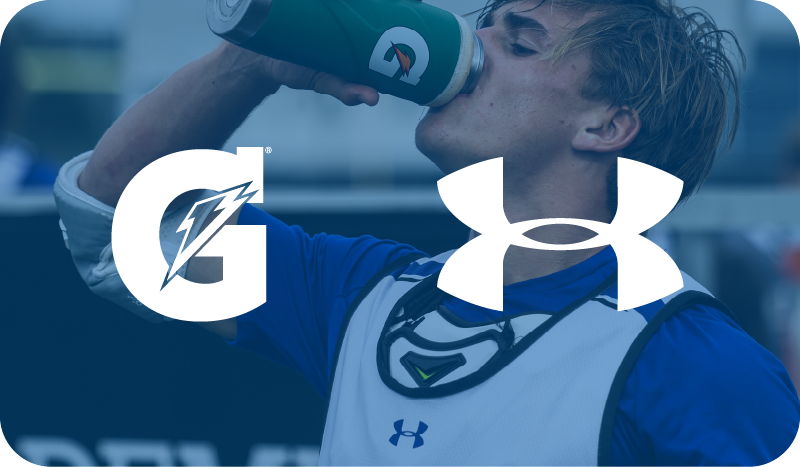Mental performance training can help student-athletes boost their confidence, focus, determination, and other psychological skills so they can practice and compete at their very best. But how do you know which skills you’re already strong in and where you need to improve?
That’s where IMG Academy’s Mental Performance Assessment comes in.
The MPA is a comprehensive tool that evaluates a student-athlete’s mental strengths and provides a valid, reliable snapshot of their mental performance. It was developed by IMG Academy Director of Personal Development Dr. Duncan Simpson in collaboration with Dr. Michael Kalkbrenner, a top psychometrician (a psychologist who develops and standardizes psychological tests) at New Mexico State University.
“For a long time in the field of sport psychology, there was this belief that psychological skills are very subjective and so we couldn’t measure them, but we now know that’s inaccurate,” says Simpson, who came to IMG Academy in 2017 from Barry University in Miami, where he taught in the Sport, Exercise, and Performance Psychology program.
Simpson said he wanted IMG Academy’s mental performance curriculum to be evidence-based and data-informed as opposed to data-driven. “As the field of sport in general has shifted toward data and sport science, it was important that we had a comprehensive mental performance assessment that could help inform our programming and also hopefully enable us to see development in our student-athletes,” he says.
The initial plan was to use an existing tool. “We tested every assessment that’s been used in the youth athletic space, and what we found was that nothing was broad enough to fit what we needed,” Simpson says. That led to Plan B: developing a new mental performance assessment specifically for IMG Academy’s student-athletes.
The Science Behind the Mental Performance Assessment
Creating the MPA was a rigorous scientific process that lasted more than two years. Simpson reached out to a former research colleague at New Mexico State University, who put him in touch with Dr. Kalkbrenner, who is Associate Professor of Counseling and Educational Psychology at the university.
“Mike developed what’s called the MEASURE Approach, which is a well-established method for developing and validating testing instruments,” Simpson says. “So, by collaborating with him and using his approach, we were able to ask the right questions to ensure the MPA’s score validity.”
First, Simpson and Kalkbrenner had to figure out how many distinct factors the MPA would cover. They started with a composite of 15 different assessments that consisted of roughly 120 questions, which they tested on about 1,100 student-athletes.
After removing incomplete responses and ensuring that any missing data was completely random, they evaluated the results using a process called exploratory and confirmatory factor analysis: first identifying the underlying factors, then confirming that they were accurate.
“What we found is that there was a lot of overlap in the terms that were used; for instance, ‘resilience’ in one assessment might be called ‘emotional management’ in another,” Simpson says. “So, what happens is you end up lumping some questions together, and other questions fall out.”
Initially, the collaborators landed on an assessment that measured eight mental performance factors, but with further analysis, they narrowed the list to five:
- Resilience: The ability to overcome obstacles and challenges to perform at one’s best
- Handling pressure: The ability to perform at one’s best in tough and important moments
- Confidence: The belief in one’s ability to succeed
- Focus: The ability to concentrate on a task, resist distractions, and quickly refocus if needed
- Commitment: The ability to stay dedicated to a goal or task with effort and determination
Taking the Mental Performance Assessment
The MPA consists of 36 questions — or more accurately, statements — that measure a student-athlete’s strengths and weaknesses in those five core areas. For each statement, the respondent chooses a number from 1 to 5, with 1 meaning “strongly disagree” and 5 meaning “strongly agree.”
For instance, the statement “I keep calm when things go wrong during a competition” measures respondents’ resilience, while the statement “Even against strong opponents, I believe in myself” is meant to evaluate their confidence.
The statements assessing how well the respondents focus and handle pressure are scored in reverse because they emphasize the negative rather than the positive. For example, “I get distracted easily in competitive situations” measures focus, while “My nerves overwhelm me before competing” is used to evaluate how well someone handles pressure.
Not all factors have the same number of statements, so the MPA is scored by tallying each category (the composite score) and then dividing the total by the number of statements. For example, the resilience category has 11 statements, so if a student-athlete has a composite score of 44, that is divided by 11 for a final score of 4.
To make it easier for students to understand their results, the scores are then converted into a maximum score of 100. In other words, a resilience score of 4 out of 5 would be converted to a score of 80 out of 100.
“In addition to these individual scores for the five factors, the student-athlete is given an overall composite score called a mental performance score, which is a measurement of their overall mental performance ability,” Simpson says.
Kalkbrenner also created a rating scale so student-athletes can see where they stand in relation to their peers:
- Very high: 2% above 90.5
- High: 13.6% between 82.5 and 90.4
- Average: 68.2% between 61.5 and 82.4
- Low: 13.6% between 51.5 and 61.4
- Very low: 2% below 51.5
“Having this rating scale helps us to communicate to a student-athlete what their score means for them,” Simpson says.
How IMG Academy Uses the MPA
Student-athletes at IMG Academy take the MPA three times a year: in September, January and May. “This is done as part of their IDP, or individual development plan, which includes not just mental performance but also strength in their sport,” Simpson says. “We do it at the beginning of the school year so we have a baseline of where someone is starting from.”
Simpson says that mental performance coaching at IMG Academy is primarily delivered in groups, even for individual sports such as tennis and golf. Armed with the results from the MPA, the mental performance coaches evaluate where they see strengths and areas for improvement within a group.
“This is where being data-informed rather than data-driven comes in,” he says. “Let’s say we look at the results and see that for the group overall, focus is lower. Does that mean we need to concentrate on improving focus? Maybe, but first let’s make sure we speak to the coaches and the athletes to find out if that really should be the priority right now. If it’s a time when they’re getting ready for a tournament, maybe handling pressure is the better thing to prioritize.”
In addition to group sessions, mental performance coaches meet with student-athletes individually to provide more personalized recommendations. “Maybe you’re a soccer player, and your group is working on confidence, but your MPA shows that you’re really struggling with handling pressure,” Simpson says. “In that one-on-one meeting, we can bring up your scores and help you find ways to get better about handling pressure during a big game.”
Ultimately, the goal of IMG Academy’s Mental Performance Assessment isn’t just to help student-athletes win games or reach their personal best, Simpson says. “Really, what we’re talking about is equipping them with the skills and tools they need to manage their emotions and help set them up for success in life.”
Want to learn how to improve your ability to handle pressure, focus better, and become more resilient? Explore IMG Academy+ mental performance coaching.
Learn More









